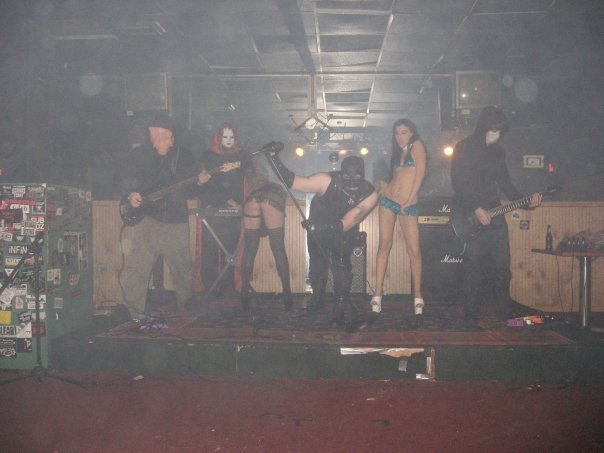Hey gang: This is a little essay that appeared in my local newspaper a few years ago. I wrote a number of these for the fun of it back in the day, so I thought I’d just repost a few.
THERE are few indignities associated with city living more consistently aggravating than the laundromat experience. Dragging your soiled linens to the laundromat is sort of like adult acne: Something you were promised you wouldn’t have to deal with once you graduated school and grew up a little, but which persists in afflicting you well into your middle age. The salt in the wounds in the New York City area, of course, is that we’re all paying ridiculous amounts of money for our tiny, cramped dwellings, and still must carry our weighty sacks of laundry to the coin-op laundry. I have, in the past, attempted to register my protest of such conditions by refusing to do laundry at all, but this proved unpopular with my coworkers, friends, and wife, and I was forced to relent.
If laundromats were glorious, sunny places you could enjoy going to, it wouldn’t be so bad, but let’s face it, laundromats—at least the ones around me—are sort of hygiene gulags, tiny, drab, and crowded. Also, often damp. Every laundromat I’ve ever been in has been uniformly depressing: Grey and featureless, with leaking machines, crowds of angry people, and sad, minimalist vending machines. When you arrive, sweaty and wearing your emergency underwear (sometimes, wearing only your emergency underwear, if it’s a real emergency), the scene that greets you is not exactly inspiring. Neither are the people you rub elbows with while trying to scrub the shame out of your clothing.
Societal breakdown is never far away in cities; too many people plus not enough space equals simmering tempers and revenge fantasies. In the laundromats you have an ill-advised further concentration, crowding people into a small, resource-starved space—it isn’t long before a Lord of the Flies scenario erupts over the possession and use of the washers and dryers. Under such stresses, the true nature of people is revealed. Some writers would hesitate to boldly categorize the entire human race into a handful of generalizations, but not me: There are five types of people you meet in the laundromat. Not six, not four, but five:
The Brood Leader: Invariably there will be people who, for one reason or another, must bring their entire family with them to the laundromat. Nothing wrong with this, of course, and many people have no other choice—the laundry’s got to be done, and the kids can’t be allowed to burn the house down while you’re out doing it. Aside from the cloud of children swarming around them, you can identify these poor souls by the flat look in their eyes that hints that a lost child or two wouldn’t bother them too much.
Single Guy:We all know this guy. Heck, I was this guy. Charmingly clueless, he arrives with laundry in a plastic garbage bag, recklessly purchases soap and bleach from the ancient vending machine in the corner, mixes whites and colors, and overstuffs the washer so it explodes into suds and water that covers the floor in a pinkish, slippery film. Inexplicably, he never returns to claim his clothing.
The Relativity Theorist: The worst part of spending time in a laundromat is spending time there, of course, and this brainy customer isn’t afraid to bend the laws of physics to their will in a bid to reduce their sentence. Noting that lots of laundry crammed into one or two dryers will take a few quarter-driven cycles to completely dry, they spread their laundry out amongst as many dryers as possible—the ultimate goal being one article of clothing per dryer—in hopes of getting out of there after a single twenty-minute cycle. And more power to them.
Angry Angry Territorialist: Ever walked into a laundromat and found every washer or dryer occupied—a large number of which have stopped? After waiting a polite period of time, you start investigating, seeking to claim one of these units for your own use. The exact length of that “polite period of time” is a subjective matter, of course, but no matter how long you wait, at some point you will place your hands on the washer or dryer containing the clothing of The Territorialist, who will appear as if out of thin air and demand to know what you think you’re doing. No matter how long they’ve let their laundry languish, it is their firm belief that while their laundry resides inside a washer or dryer, they in some sense own that washer or dryer, and heaven help you if you trespass on their property.
The Quiet Professional: Once in a great while it is the honor of every laundromat refugee to witness an awe-inspiring display of laundry-management that puts the rest of us to shame. Someone will come in and so competently manage the washers and dryers that they’re preparing to exit from the laundromat while you’re still trying to remember which washer actually contains your clothing. They crisply smooth, fold, and hang their clothes on some sort of semi-professional laundry-transportation device that makes your college-era duffel bag look foolish in comparison, and march out of the building with a confident, no-nonsense stride that says “I am going home to starch and iron, fools!”
It’s enough to make you contemplate slinking home and doing your wash in the kitchen sink. Which I would not recommend, by the way, unless you really are down to your emergency underwear and nothing else.


